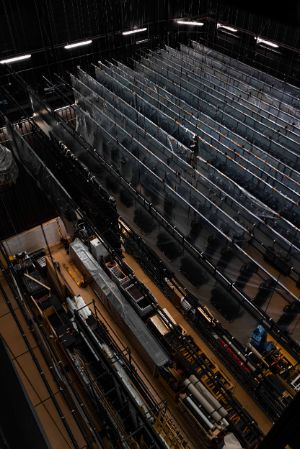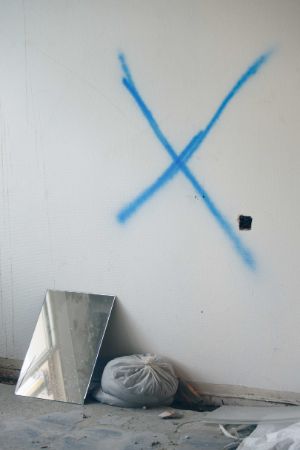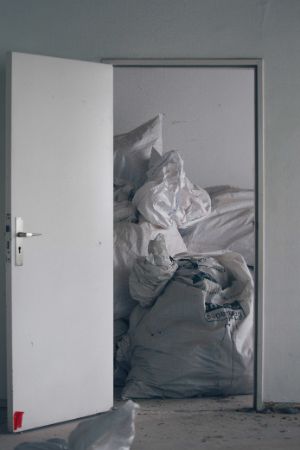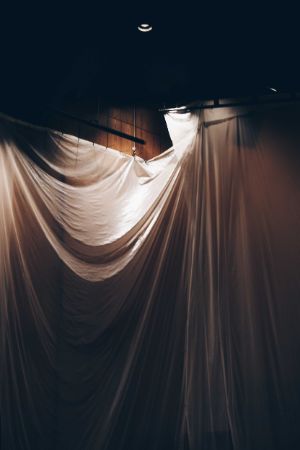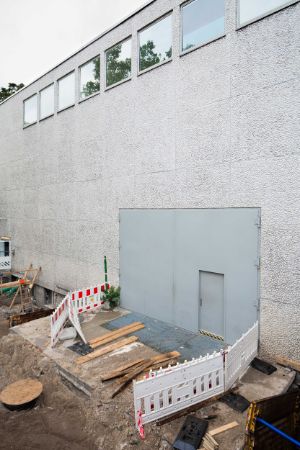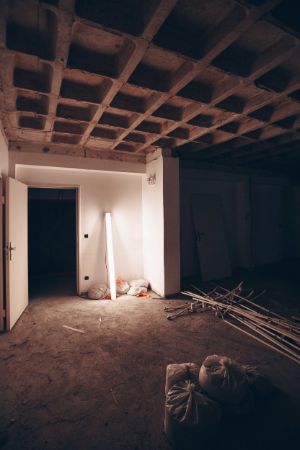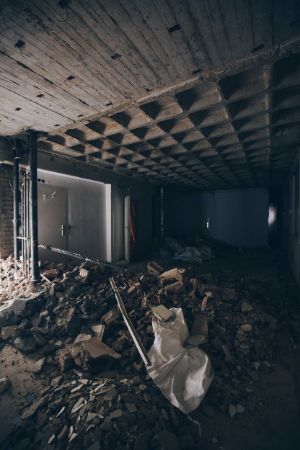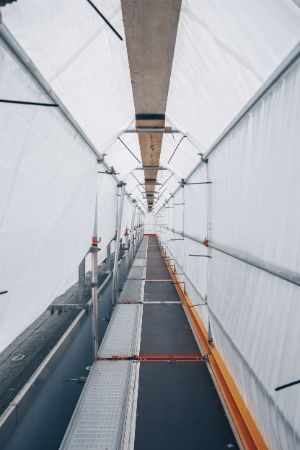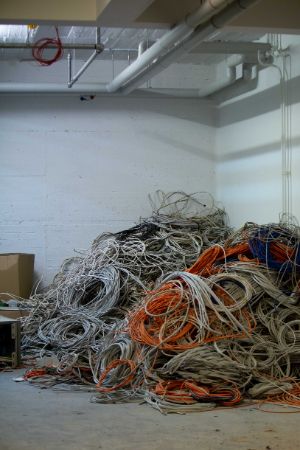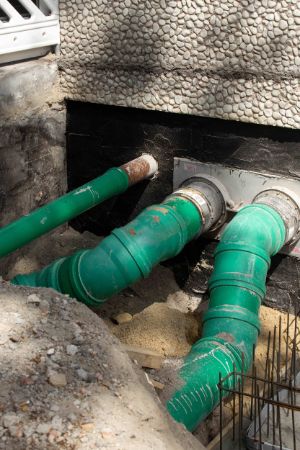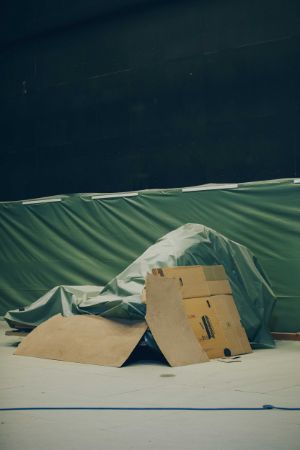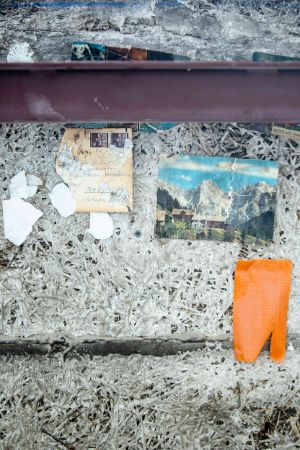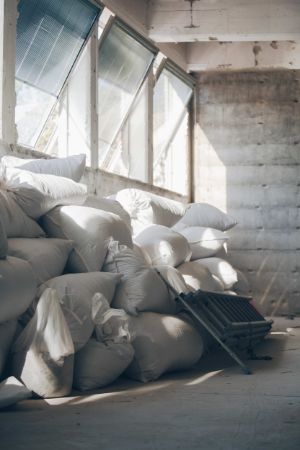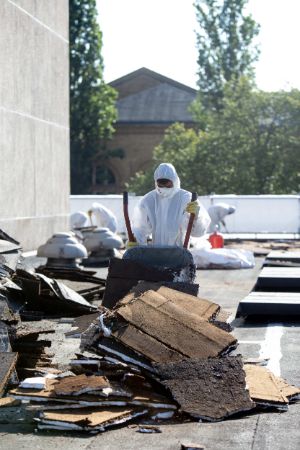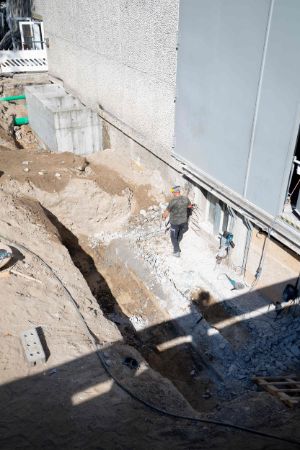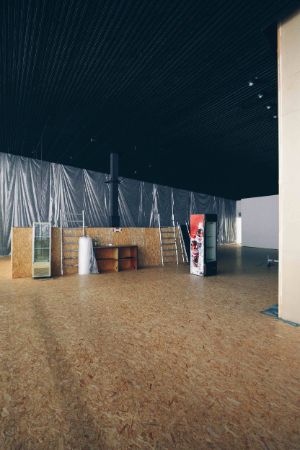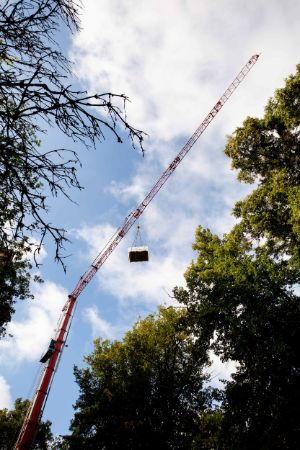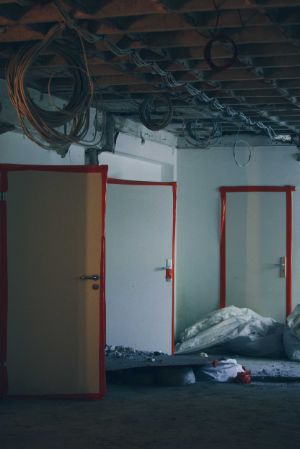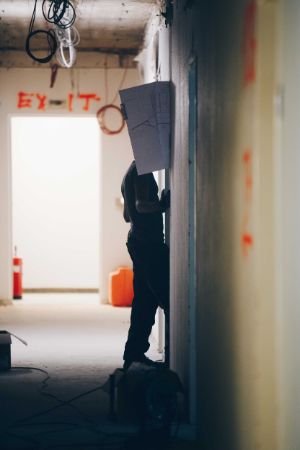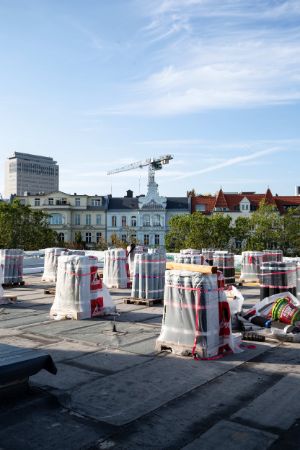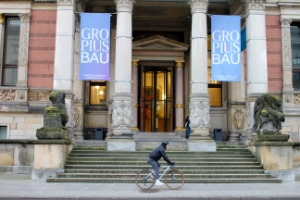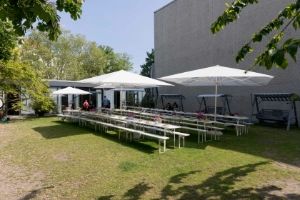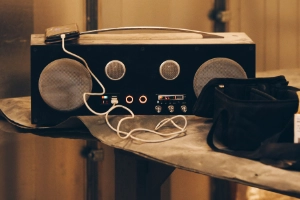Rail and Cycle Travel
Sustainability
Within the Institution
On an institutional level our work includes optimising the energy use of our buildings, instruction and advanced training for our staff and measures to compensate for and balance out unavoidable impacts.
Energy Saving Mode
The KBB GmbH and the Berliner Festspiele are jointly developing an energy-saving mode for their websites. This function can be activated by a button on the header. Firstly, it will set the site to dark mode, so that your device uses less energy to illuminate its screen. Secondly, it will also display placeholders in place of embedded images and videos. This has the effect that fewer data have to be loaded in the background so that the website will load faster even at a lower data rate. This does not apply to our festival-specific vector graphics as these take up very little memory anyway. In order to be able to view media content marked by placeholders, energy-saving mode can simply be switched off temporarily.
Renovation of the Haus der Berliner Festspiele
Between the summer of 2018 and the winter of 2022, the festival theatre was renovated in keeping with the Federal Ministry of the Interior and Community’s guidelines on “Sustainable Building”. In addition to the energy-based refurbishment of the building’s outer shell, the roofs, façades and office areas, the works also included the installation of ventilation systems with heat recovery for the wings, backstage and rehearsal spaces, replacement of the cooling unit, installation of a rainwater capture system that allows rainwater diverted from roofs to drain away close by, replacement of large sections of the electrical system and conversion of the lighting stock to LED technology, installation of a new fire alarm system, partial renovation of the network of heating pipes and the replacement of some radiator units.
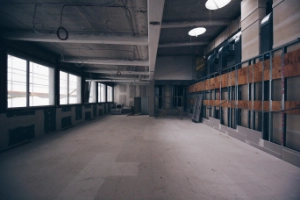
A room in the side wing of the Haus der Berliner Festspiele without flooring and partition walls.
© Berliner Festspiele, photo: Monika Karczmarczyk
The Festspielhaus During the Reconstruction Period
Energy Management at the Gropius Bau
At the end of 2010 a photovoltaic unit was installed on the roof of the Gropius Bau. Since then, it has generated 547,743 kWh of energy, all of which has been fed into Berlin’s electricity grid. The window surfaces at the Gropius Bau together with the large glass roofs above the central atrium and the vestibule have been fitted with double layers of insulating glass. Aluminium slats in between these and coating with sun protection film reduce the admission of direct sunlight and improve energy efficiency. The Gropius Bau is connected to the district heating and cooling networks. All its central ventilation systems are equipped with heat recovery features. Since 2016, a new cold-water pump for the air conditioning in the exhibition spaces on the ground and first floors has enabled the system to be adjusted automatically and operated on the basis of need. Since 2011, lighting in the exhibition spaces, staircases, cloakroom, toilets and administrative offices has gradually been replaced with LED units.
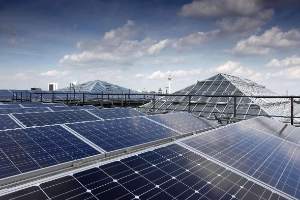
Solar system on the roof of the Gropius Bau
© Jirka Jansch
Renaturing of Marshland
Marshlands are huge carbon sinks. While they only cover three per cent of the earth, their peat layers tie in a third of terrestrial carbon – twice as much as all the earth’s forests, which make up around 30 per cent of the land surface. Since 2020 the Berliner Festspiele have compensated for air travel by their staff and the release of CO2 this has generated by renaturing marshland through the purchase of voluntary climate protection certificates, MoorFutures.
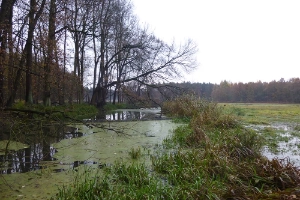
The Freienhagen moorland with trees and water areas.
© MoorFutures
